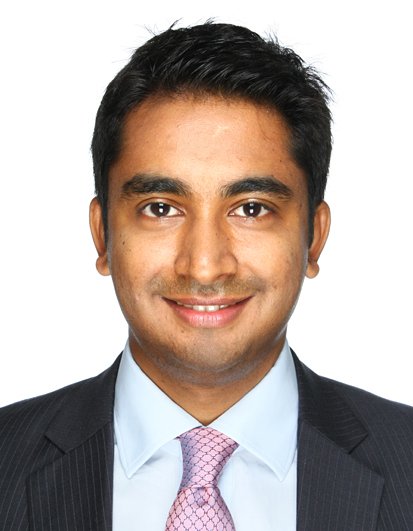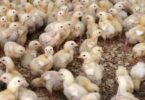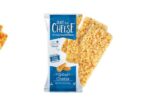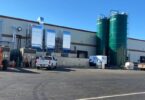When Temasek first decided to invest in the food and agriculture sector about eight years ago, it was looking for a venture fund that specialized in the space to contribute to, Agri-Food Investments Head Anuj Maheshwari said. But there weren’t any.
The state-owned investment company based in Singapore found a couple of smaller funds getting started, Maheshwari said, but they were also new to food and agriculture.
« You’re like, ‘Hey, how well have you done last time?’ » he recalled. And then he recalled the response: Nobody had made any investments in the space.
« …That’s the big picture, » he said. « Then we were like, ‘Well, we’re just going to do it ourselves.’ «
Temasek was the first of the big investment firms to start concentrating on food and agriculture, and it’s still one of the most active in the space. Since 2013, Temasek has invested more than $8 billion in the food and agriculture space worldwide. It currently has more than 40 agrifood companies in its portfolio, seven of which have grown to be unicorns with valuations of more than $1 billion.
Temasek invests in industries and companies that are plugged into long-term trends shaping the world, Maheshwari said. We’re living in a technologically driven society, where digitization and new breakthroughs connect us all in new ways, he said. The way people consume goods and services is changing. People are living longer, therefore needs are changing. And there is a real need for the world to operate in a more sustainable way.
Anuj Maheshwari
Permission granted by Temasek
Maheshwari said Temasek regularly looks at the trends at the heart of its investments and examines how different industries and businesses fit. Temasek was among the first to realize that food and agriculture were important to all of these trends, he said. The food industry is vital to everyone worldwide, and yet conventional animal agriculture is responsible for 14.5% of global greenhouse gas emissions, according to the United Nations’ Food and Agriculture Organization.
But it isn’t just animal agriculture that contributes to pollution and is in need of innovation. Maheshwari, who is based in Asia, pointed out that rice farming is actually a larger contributor to potent methane emissions, representing about 12% of global emissions a year, according to a white paper from the Environmental Defense Fund. The flooded paddies used for rice farming, scientists say, block the underlying soil from absorbing bacteria and provide an ideal environment for methane-emitting bacteria to reproduce.
It’s something Maheshwari said people need to be more aware of, and something that Temasek is putting its resources and voice behind. At last year’s COP26 climate summit, he said, world leaders talked about the need for humanity to undergo a transition in how it gets its energy in order to meet the UN’s 2050 sustainability goals.
« But what about the food transition? » he asked, talking to Food Dive on the sidelines of the Future Food-Tech conference, which is focused on investments in innovative companies and technology, in San Francisco last month. « That’s not just capital. That’s people changing their behavior. That’s governments changing their policy. That’s a mindset shift, which is more challenging, but very, very necessary. …We’ve got to look at the food industry and fundamentally find innovative models like all the companies over here to back them. »
Investing in holistic change
As Temasek started taking a look at the food industry and who had the passion, the ideas and the know-how to make a difference, Maheshwari said it started making investments in a variety of companies.
The first was Ceva Santé Animale, a French company that can vaccinate chicken eggs against several different avian diseases, lessening the need for antibiotics. When animals used for food are treated with antibiotics, their residue can make those drugs less effective in people. Overuse of antibiotics can also lead to more resistant bacteria. Minimizing these threats, Maheshwari said, reduces a large problem in the current food system.
Temasek by the numbers
$8 billion
Amount Temasek has invested in the food and agricultural tech space since 2013
40+
Portfolio companies in the food and ag-tech space, including Impossible Foods, Upside Foods, Eat Just, Perfect Day and Wildtype
13
Number of investments in food tech in 2021, according to Crunchbase
6
Lead investments in food tech in 2021, according to Crunchbase
But Pat Brown, the founder of Impossible Foods — in which Temasek has invested three times since 2017 — attacked this strategy the first time he met Maheshwari. He recalled Brown told him companies that work in animal agriculture are destroying the world and should not be allowed to exist. Maheshwari said Temasek wants to change the world, but has to continue to feed it, too.
« We allowed two alternates to a changing world and driving-faster world by investing in high-quality companies that were doing what? Adding proficiency to existing systems, and fundamentally re-questioning the system, » Maheshwari said. « So there’s Impossible Foods, which says, ‘Here’s a plant-based protein, and that’s just what people should have.’ That’s a great theory for them. But the practical reality is we still need to feed the people, and we still need companies that make chicken better. »
Temasek kept up its investment strategy, putting money into companies that improved the existing structure as well as those who looked beyond, using technology to create something new and better. Other than Impossible, many of the leading companies in the food tech sphere — including Perfect Day, The Every Company, Next Gen Foods and Upside Foods — are in Temasek’s portfolio.
Getting into the white spaces with passionate founders
As a long-term investor that has been known to participate in multiple funding rounds, Temasek looks for companies that have the right leaders and strategies, Maheshwari said.
Right now, for example, there are many new plant-based food companies coming to the market. In the U.S. alone, there were more than 250 new SKUs in the plant-based segment last year, according to the Good Food Institute. So just any plant-based meat company isn’t likely to attract Temasek’s attention. But a company doing something unique — like Next Gen Foods, making its versatile crafted-for-chefs chicken analog Tindle — is likely to get another look.
And while vertical farming is becoming a hot area for investment, Maheshwari said there aren’t too many companies focused on creating seeds optimized for that kind of cultivation. To meet that need, Temasek and Bayer joined forces to create Unfold, a company with that focus.

Packaged greens from portfolio company Bowery Farming.
Courtesy of Bowery
There are some themes to the companies Temasek invests in, Maheshwari said. It looks for businesses that can make a difference in fresh produce, sustainable proteins, and healthy and functional ingredients. It also looks for transformative technologies, which Maheshwari defined as companies using biotech to redesign food or ingredients — including Pairwise, which uses CRISPR to improve plants for human palates — and those that can reduce wasted food or water. Temasek has invested three times in Farmers Business Network, which has an extensive platform to help farmers reduce waste, maximize yields and measure sustainability impact. And it took a majority stake in Rivulis, an Israel-based company specializing in targeted drip irrigation systems.
But aside from having the right solutions to problems that are on the horizon, Maheshwari said it’s also very important for companies to have the right leaders. After all, their management teams control the investment funds. They need to have the right kind of passion for the space, he said. That goes far deeper than being interested in food or agriculture because it’s one of the hot areas for tech development.
« What about the food transition? That’s not just capital. That’s people changing their behavior. That’s governments changing their policy. That’s a mindset shift, which is more challenging, but very, very necessary. «

Anuj Maheshwari
Head of Agri-Food investments, Temasek
« It’s a tough sector, » he said. « It doesn’t have the good margins. Companies are not born over five years. You don’t flip and move to the next thing, you have to be ready to spend 20 years doing this thing. But you should enjoy the fact that you’re connected to the environment. You’re connected to people’s emotions. What you do is relevant. It’s solving a world problem. »
And, of course, Temasek also looks to invest in companies that can be profitable as they scale, with products and processes that are well aligned with impact and sustainability goals. Maheshwari said if a company’s impact can be quantified and is able to truly make a difference — like Perfect Day’s animal-free dairy proteins — it is more likely to get larger investments from Temasek.
Investing in the future
While Temasek has supported some of the biggest names in food tech multiple times, it usually doesn’t jump into investing in a new upstart. Maheshwari said the firm is generally a Series B investor — Temasek comes in when a company has established itself and has some other long-term investors who can talk about its plans, progress and how it is fitting in to the marketplace.
After Temasek is convinced of a company’s potential and there is verifiable early success, it does not wait for the business to spend time perfecting its early offerings, plans or governance before investing, Maheshwari said.
« We’re willing to take the bet to put that second capital relatively early, so that what companies do is they really translate that early win into a real sort of acceleration of their business model and business plan, » Maheshwari said.
This strategy — and the financing — helped Impossible Foods in negotiations with Burger King to introduce the Impossible Whopper, he said. Through the years, Temasek has seen Impossible Foods continue to grow and develop, Maheshwari said, and the amount it has invested in them has gradually increased.

Products made from portfolio company Perfect Day’s animal-free dairy proteins.
Courtesy of Perfect Day
Maheshwari said that when Temasek invests, it also brings connections and expertise to the table. While it doesn’t know how to create the best alternative proteins, Maheshwari said Temasek is knowledgeable on the business space and can advise a company to help it grow and succeed. Some people connected with Temasek also serve on these companies’ boards of directors, sharing their knowledge of how to grow, scale and operate successfully.
As a large global investor, Temasek also has deep connections to many industries all over the world. Sometimes, smaller businesses aren’t interested in talking to bigger companies because they fear the giants may be after their intellectual property, Maheshwari said. Temasek has often served to build a bridge between these two entities and facilitate a conversation — which may lead to high-level partnerships or increased funding down the line.
Aside from its investments in food and agriculture tech companies, Temasek supports a research laboratory in Singapore. The Temasek Life Sciences Laboratory has 225 researchers who are studying plant and animal foods, fermentation, functional foods and other areas in food tech, and it is affiliated with the National University of Singapore.
Temasek has also created the Asia Sustainable Foods Program, which helps connect promising startups to the tech, equipment and know-how they need in the region. Maheshwari said these kinds of programs help to bring together all sides of the food tech industries — manufacturers, scientists, regulators, policymakers and consumers — to influence the conversation and help the ecosystem.
When Temasek first got started investing in food and agriculture, it was just about the only big venture fund there. In 2021, the agriculture and food tech sector received $51.7 billion in investments, according to AgFunder’s annual report. Maheshwari said he is glad to see more money coming in to the space, though he worries that some investors may be putting their funds toward food tech because it’s a hot space and skipping the due diligence needed. Maheshwari advised any large investor looking to this area to ask the hard questions and make sure that a company has what it takes to be successful.
« We allowed two alternates to a changing world and driving-faster world by investing in high-quality companies that were doing what? Adding proficiency to existing systems, and fundamentally re-questioning the system. »

Anuj Maheshwari
Head of Agri-Food investments, Temasek
However, Maheshwari expects this segment to generate even more investor interest, and the high dollar figures from 2021 are unlikely to be an anomaly. People worldwide — ranging from entrepreneurs to investors to manufacturers — are beginning to see how important a transition of the food system is to create a more sustainable world. And, he said, those investors may be tired of putting their money into things like vehicle batteries.
While the stock market has been somewhat unpredictable as of late, Maheshwari also hopes that some of the companies Temasek has been supporting decide to go public, allowing any investor to enjoy the same returns the firm has seen. With more investment and greater scale, he said, food tech can make what we eat even more cost effective than products on the market today.
« I am bullish, » Maheshwari said. « I just think that the need is there and good ideas are there, and when we look at our portfolio, we are seeing some outstanding companies which are proving [the] economics [of food tech] coming up. »








